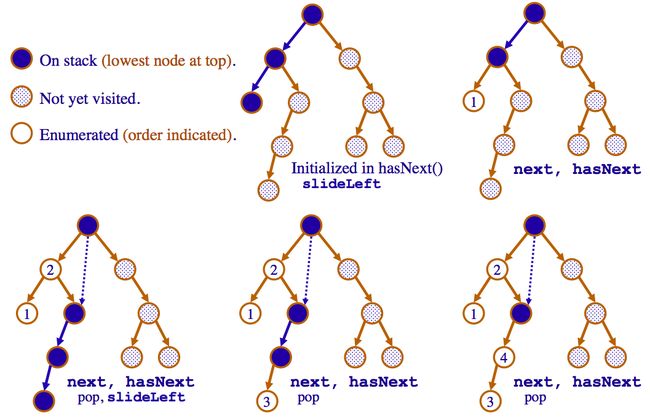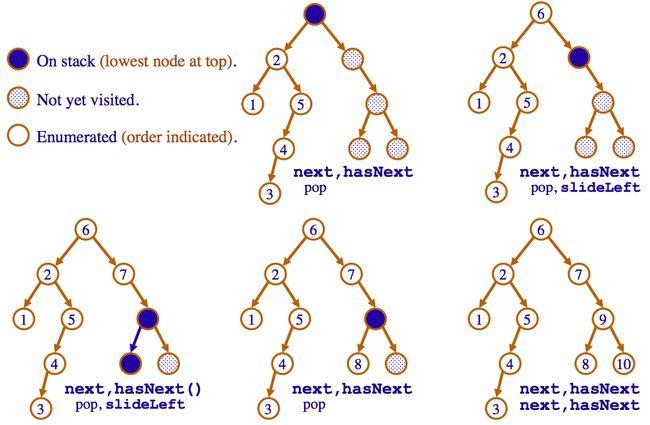Implement an iterator over a binary search tree (BST). Your iterator will be initialized with the root node of a BST.
Calling next() will return the next smallest number in the BST.
Note: next() and hasNext() should run in average O(1) time and uses O(h) memory, where h is the height of the tree.
Implementation:
/**
* Definition for binary tree
* public class TreeNode {
* int val;
* TreeNode left;
* TreeNode right;
* TreeNode(int x) { val = x; }
* }
*/
public class BSTIterator {
private Stack<TreeNode> stack = new Stack<TreeNode>();
public BSTIterator(TreeNode root) {
pushLeft(root);
}
private void pushLeft(TreeNode node) {
while(node != null) {
stack.push(node);
node = node.left;
}
}
/** @return whether we have a next smallest number */
public boolean hasNext() {
return !stack.isEmpty();
}
/** @return the next smallest number */
public int next() {
TreeNode n = stack.pop();
pushLeft(n.right);
return n.val;
}
}
/**
* Your BSTIterator will be called like this:
* BSTIterator i = new BSTIterator(root);
* while (i.hasNext()) v[f()] = i.next();
*/
Reference:
http://classes.engr.oregonstate.edu/eecs/spring2012/cs261/lectures/BST_Iterator.pdf
http://n00tc0d3r.blogspot.com/2013/08/implement-iterator-for-binarytree-i-in.html

